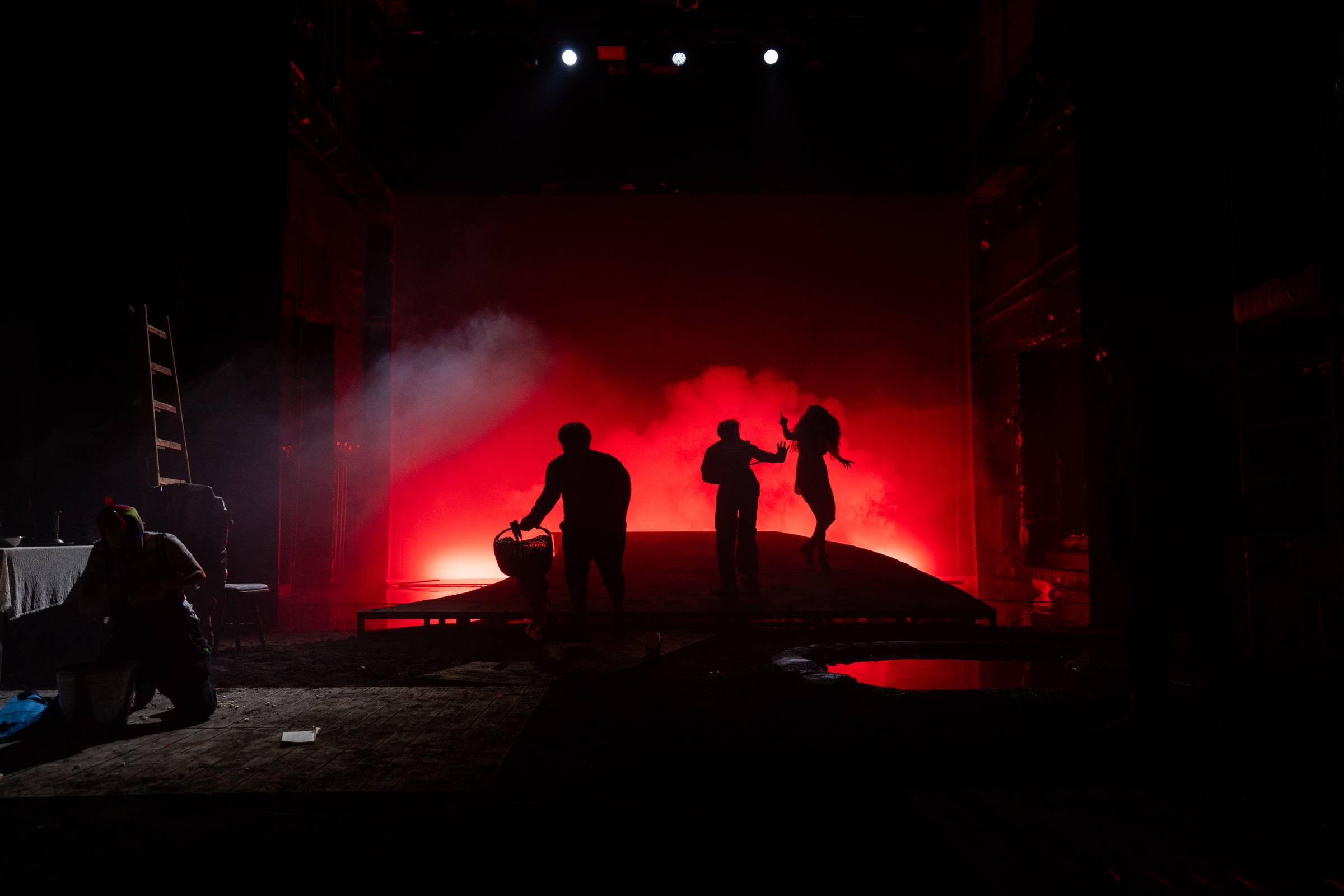
The Dragon
by Evgeny Schwartz –– Direction: Yuri Kordonsky (a.G.)
Duration of the performance: 1h50'
Surtitles: RO/EN
Age limit: 14+
The dragon in us
A dragon has subjugated a city for centuries. The inhabitants must feed it thousands of cows, sheep and chickens and sacrifice a maiden to it every year. But the people have come to terms with this, no one rebels against it, on the contrary, in fact they consider the dragon's rule to be safe. One day a young man, the knight Lancelot, appears and questions this order. He falls in love with the beautiful Elsa, who is to be sacrificed that year, and wants to fight the dragon. But virtually no one sees him as a possible liberator or would be willing to support him in battle.
In 1943, Russian author Yevgeny Schwarz dressed his criticism of the German Nazi regime in the garb of a fairy tale. But the Communist leaders of the Soviet Union at the time also saw themselves reflected in the play The Dragon. After two dress rehearsals in Moscow in 1944, the performance was banned. The parable has remained frighteningly topical in light of Russia's war against Ukraine. For Schwarz not only satirizes dictatorships, but also shows that arbitrariness and violence endure because people have internalized the mechanisms and values of such a system of government. We all carry the dragon within us.
Surtitles: RO/EN
Age limit: 14+
Duration: 01:50
Cast
Isa Berger
Charlemagne
Robert Bogdanov-Schein
Tomcat
Alma Diaconu
Dragon
Ioana Iacob
Heinrich
Marc Illich
The Mayor
Alexandru Mihăescu
Lancelot
Harald Weisz
Yuri Kordonsky (a.G.)
Sets and Costumes
Ioana Popescu
Dramaturgy
Rudolf Herbert
Video
Cristian Ienciu
Stage Speech
Ulrike Schulze (a.G. aus Deutschland)
Direction assistance
Isolde Cobeţ
Make-up
Bojita Ilici
Technical direction
Costinel Stănescu
Cătălin Tănase
Live original music
Sorina Savii (a. G.)
Lucas Kohl (a.G.)
Light design
Cosmin Anania
Translation from the Russian language
Günter Jäniche
Press excerpts
"The fairy tale play in parable form was written in the 1940s and deals with the interplay of dictatorship and the spirit of subjugation. Shortly after its premiere in Moscow in 1944, the production was banned because the play was understood as a critique of the Soviet political system."
https://www.sursadevest.ro/save-the-date-finalul-lunii-septembrie-aduce-o-noua-editie-a-festivalului-european-de-teatru-la-timisoara/
There's something of the Tót Family in the Dragon. Published in 1966, Hungarian writer István Örkeny's micro-novel (dramatised shortly after its publication and since then a great success on the world stage, including Romanian ones) sets its action in the years of the Second World War, when Evgheny Schwarz wrote his timeless fable. The two literary gems share the same ability to meditate on the political dimension of man (understood as his position in society) through humour, absurdity, empathy, anxiety, anguish, despair and hope. There's something of all this in Kordonsky's newly staged German-language Timisoara.
Mihai Brezeanu
https://agenda.liternet.ro/articol/27825/Mihai-Brezeanu/Libertati-Der-Drache-Dragonul.html?fbclid=IwAR2lvj3DVHhKxLqXREFwH7P10k9W2LdKBl_4BzgbP0hz9sFMuQaiEfkwpu4
Trailer
Photos




















